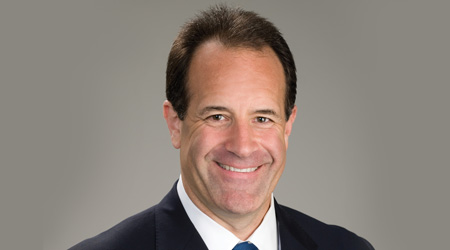
We are only two months or so into the new year…and new decade. Sales leaders everywhere are universally optimistic. Should they be? Is your optimism justified?
Fast forward 12 months. What's different? Will you have achieved your sales objectives?
The research is clear, an overwhelming majority of sales forces will fail to gain market share — defined as growing faster than GDP, plus inflation.
In this article, we have shared six thought-provoking questions that you can use to gauge how likely you are to make your number in 2020.
1. Do you honestly believe that you can reach your goals with the team that you have? Be brutally honest. Remember that a strong economy makes weak sellers look good. A weak economy requires more sales talent. Whichever way the economy turns, the best leaders understand that there is no substitute for talent. They employ a powerful combination of advanced training techniques and sales coaching to outperform the competition. Wondering how your team stacks up? Use this no-cost tool to find out: http://stats.objectivemanagement.com/380.
2. Do you know if you have the right salespeople on your team? Are they in the right roles — inside sales, business development, account management? Start by defining the roles that your company needs to succeed. Next, build a unique profile for each roll. Then compare each of your salespeople to each of the roles. Is there a fit? Are they better suited for a different role? What skills do they need to develop?
3. How much of your business is based on repeat orders versus what your sales team is actually selling? Most distributor sales organizations tend to rely almost exclusively on their existing books of business. How much new business from new customers has your team brought in over the past 12 months? Is your market share in existing accounts growing?
4. When was the last time you terminated a salesperson for lack of performance? I know, your underperformers are not costing you anything because they are largely commission-based. Really? Are you considering the opportunity costs? Most sales leaders spend more time on a handful of underperformers than they do coaching the middle 60 percent of the team that actually benefit from sales development.
5. Do you have the tools and skills to hire and onboard new salespeople in a way that ensures rapid time to revenue? Are you able to add productive sales talent every year? Are you growing your sales force? Is your ramp-up time acceptable? Use this free calculator to find out: https://knowledgeworx.com/knowledgebase/salesperson-ramp-up-calculator/.
6. Do you have a sustainable business model or are you using the same strategies from years prior? Sales growth has never been harder. The combination of nontraditional competitors, highly educated customers and supply chain disintermediation requires salespeople to be stronger than they have ever been. Customers are eager to develop relationships with trusted business advisors. They also have no use for product-centric peddlers.
Keep this quote from Jordan Belfort in mind as you reflect on your answers to each question and the actions needed to achieve greatness: "You need to see things as they are, not worse than they are, than see them better than they are, and make them that way."
Jim Peduto is the managing partner and the co-founder of Knowledgeworx, LLC and is certified in Sales Force Effectiveness. Knowledgeworx is dedicated to working with business owners and CEOs who want to grow revenue and increase profitability. He can be reached at jim@knowledegeworx.com.

 The Down and Dirty on Cleaning in Virus Season
The Down and Dirty on Cleaning in Virus Season How Surfactant Use is Expanding in Commercial Cleaning
How Surfactant Use is Expanding in Commercial Cleaning